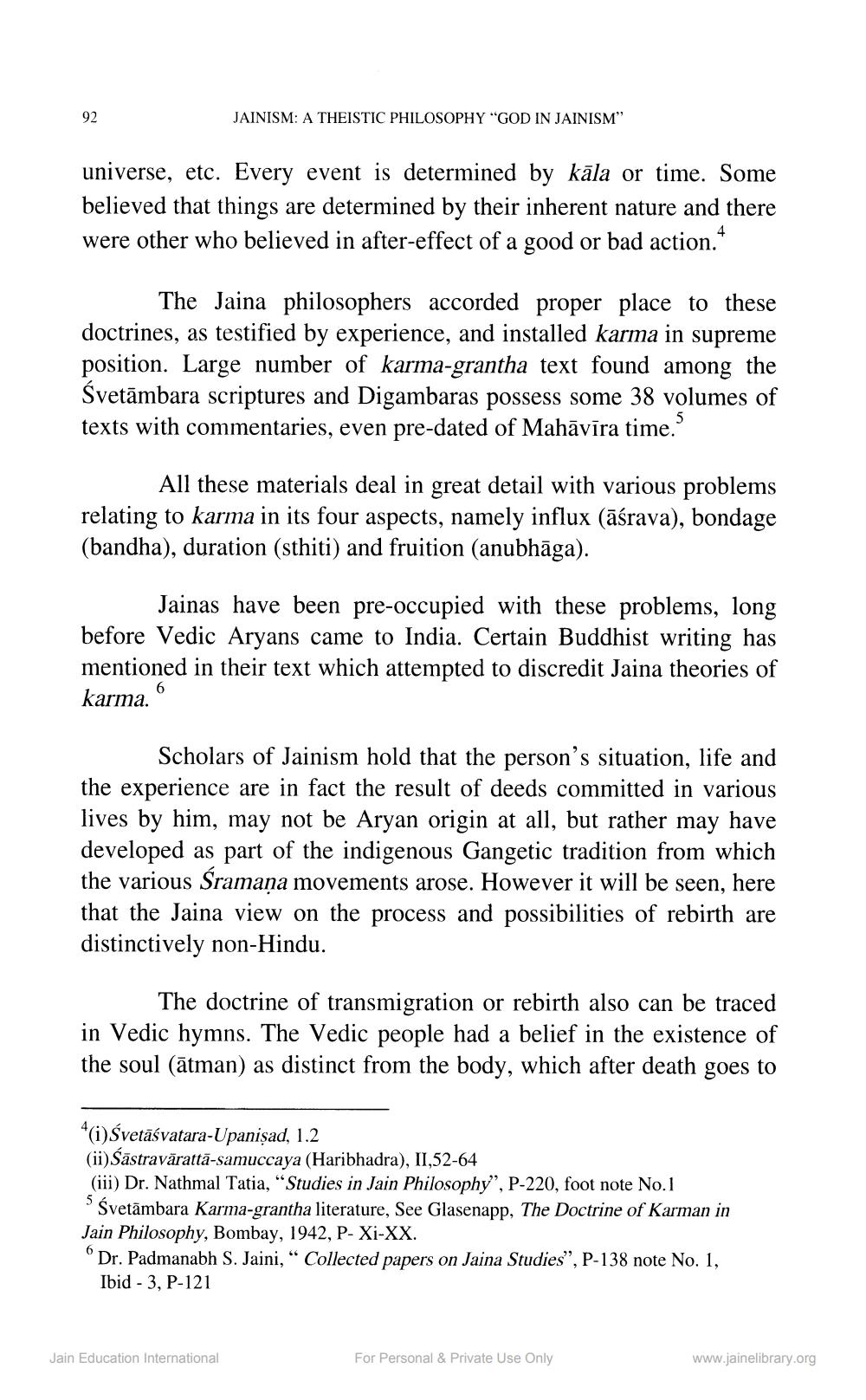________________
JAINISM: A THEISTIC PHILOSOPHY "GOD IN JAINISM"
universe, etc. Every event is determined by kāla or time. Some believed that things are determined by their inherent nature and there were other who believed in after-effect of a good or bad action."
The Jaina philosophers accorded proper place to these doctrines, as testified by experience, and installed karma in supreme position. Large number of karma-grantha text found among the Svetāmbara scriptures and Digambaras possess some 38 volumes of texts with commentaries, even pre-dated of Mahāvīra time.'
All these materials deal in great detail with various problems relating to karma in its four aspects, namely influx (āśrava), bondage (bandha), duration (sthiti) and fruition (anubhāga).
Jainas have been pre-occupied with these problems, long before Vedic Aryans came to India. Certain Buddhist writing has mentioned in their text which attempted to discredit Jaina theories of karma.
Scholars of Jainism hold that the person's situation, life and the experience are in fact the result of deeds committed in various lives by him, may not be Aryan origin at all, but rather may have developed as part of the indigenous Gangetic tradition from which the various Śramaņa movements arose. However it will be seen, here that the Jaina view on the process and possibilities of rebirth are distinctively non-Hindu.
The doctrine of transmigration or rebirth also can be traced in Vedic hymns. The Vedic people had a belief in the existence of the soul (ātman) as distinct from the body, which after death goes to
4(i) Svetāśvatara-Upanișad, 1.2 (ii) Šāstravärattā-samuccaya (Haribhadra), II,52-64 (iii) Dr. Nathmal Tatia, “Studies in Jain Philosophy”, P-220, foot note No.1
Svetāmbara Karma-grantha literature, See Glasenapp, The Doctrine of Karman in Jain Philosophy, Bombay, 1942, P-Xi-XX.
Dr. Padmanabh S. Jaini,“ Collected papers on Jaina Studies”, P-138 note No. 1, Ibid - 3, P-121
Jain Education International
For Personal & Private Use Only
www.jainelibrary.org




